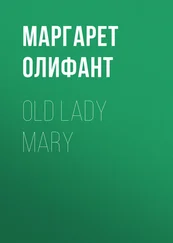Маргарет Олифант - A House in Bloomsbury
Здесь есть возможность читать онлайн «Маргарет Олифант - A House in Bloomsbury» — ознакомительный отрывок электронной книги совершенно бесплатно, а после прочтения отрывка купить полную версию. В некоторых случаях можно слушать аудио, скачать через торрент в формате fb2 и присутствует краткое содержание. Жанр: foreign_prose, literature_19, foreign_antique, на английском языке. Описание произведения, (предисловие) а так же отзывы посетителей доступны на портале библиотеки ЛибКат.
- Название:A House in Bloomsbury
- Автор:
- Жанр:
- Год:неизвестен
- ISBN:нет данных
- Рейтинг книги:5 / 5. Голосов: 1
-
Избранное:Добавить в избранное
- Отзывы:
-
Ваша оценка:
- 100
- 1
- 2
- 3
- 4
- 5
A House in Bloomsbury: краткое содержание, описание и аннотация
Предлагаем к чтению аннотацию, описание, краткое содержание или предисловие (зависит от того, что написал сам автор книги «A House in Bloomsbury»). Если вы не нашли необходимую информацию о книге — напишите в комментариях, мы постараемся отыскать её.
A House in Bloomsbury — читать онлайн ознакомительный отрывок
Ниже представлен текст книги, разбитый по страницам. Система сохранения места последней прочитанной страницы, позволяет с удобством читать онлайн бесплатно книгу «A House in Bloomsbury», без необходимости каждый раз заново искать на чём Вы остановились. Поставьте закладку, и сможете в любой момент перейти на страницу, на которой закончили чтение.
Интервал:
Закладка:
When Gilchrist, scarcely less rapid though so much heavier than her mistress, opened the door, there stood before it a little man very carefully dressed, though in morning costume, in a solemn frock coat, with his hat in his hand. Though professional costume no longer exists among us, it was impossible not to feel and recognise in a moment that nothing but a medical man, a doctor to the tips of his fingers, could have appeared in just that perfect neatness of dress, so well brushed, so exactly buttoned, so gravely clothed in garments which, though free of any peculiarity of art or colour, such as that which distinguishes the garb of a clergyman, were yet so completely and seriously professional. His whiskers, for it was in the days when these ornaments were still worn, his hair, brown, with a slight crisp and upturning, like lining, of grey, the watch-chain that crossed his waistcoat, as well as the accurate chronometer of a watch to which so many eager and so many languid pulses had beat, were all in perfect keeping; even his boots—but we must not pursue too far this discussion of Dr. Roland’s personal appearance. His boots were not the polished leather of the evening; but they were the spotless boots of a man who rarely walked, and whose careful step from his carriage to a patient’s door never carried in any soil of the outside to the most delicate carpet. Why, being one of the inhabitants of this same house in Bloomsbury, he should have carried his hat in his hand when he came to the door of Miss Bethune’s drawing-room from his own sitting-room downstairs, is a mystery upon which I can throw no light.
The ideas of a man in respect to his hat are indeed unfathomable. Whether he carries it as a protection or a shield of pretence, whether to convey to you that he is anxiously expected somewhere else, and that you are not to calculate upon anything but a short appearance upon your individual scene, whether to make it apparent by its gloss and sheen how carefully he has prepared for this interview, whether it is to keep undue familiarity at arm’s length, or provide a becoming occupation for those hands with which many persons, while in repose, do not know what to do, it is impossible to tell. Certain it is that a large number of men find consolation and support in the possession of that article of apparel; and though they may freely abuse it in other circumstances, cling to it on social occasions as to an instrument of salvation. Dr. Roland held it fast, and bowed over it with a little formality, as he came into his neighbour’s presence. They met on the stairs or in the hall sometimes three or four times in a day, but they were not the less particular in going through all the forms of civility when the doctor came to pay a call, as if they had not seen each other for a week before. He was a man of very great observation, and he did not miss a single particular of the scene. The screen drawn round the lady, defending her not only from the fire but from inspection, and a slight glistening upon the cheek of Gilchrist, which, as she did not paint or use any cosmetic, had but one explanation. That he formed a completely wrong conclusion was not Dr. Roland’s fault. He did so sometimes from lack of material on which to form his judgment, but not often. He said to himself, “There has been a row,” which, as the reader is aware, was not the case; but then he set himself to work to smooth down all agitation with a kindness and skill which the gentlest reader, knowing all about it, could not have surpassed.
“We have just been doing a very wrong thing, Gilchrist and me,” said Miss Bethune; “a thing which you will say, doctor, is the way of ladies and their maids; but that is just one of your generalisings, and not true—except now and then. We have been wondering what is the strange story of our bonnie little Dora and that quiet, learned father of hers upstairs.”
“Very natural, I should say,” said the doctor. “But why should there be any story at all? I don’t wonder at the discussion, but why should there be any cause for it? A quiet, learned man, as you say, and one fair daughter and no more, whom he loves passing well.”
“Ah, doctor,” said Miss Bethune, “you know a great deal about human nature. You know better than that.”
The doctor put down his hat, and drew his chair nearer the fire. “Should you like to hear the story of poor Mannering?” he said.
CHAPTER V
There is nothing more usual than to say that could we but know the life history of the first half-dozen persons we meet with on any road, we should find tragic details and unexpected lights and shadows far beyond the reach of fiction, which no doubt is occasionally true: though probably the first half-dozen would be found to gasp, like the knife-grinder: “Story? Lord bless you! I have none to tell, sir.” This, to be sure, would be no argument; for our histories are not frequently unknown to, or, at least, unappreciated by ourselves, and the common human sense is against any accumulation of wonders in a small space. I am almost ashamed to say that the two people who inhabited one above the other two separate floors of my house in Bloomsbury, had a certain singularity and unusualness in their lives, that they were not as other men or women are; or, to speak more clearly, that being as other men and women are, the circumstances of their lives created round them an atmosphere which was not exactly that of common day. When Dr. Roland recounted to Miss Bethune the story of Mr. Mannering, that lady shut her lips tight in the partial shadow of the screen, to restrain the almost irrepressible murmurs of a revelation equally out of the common which belonged to herself. That is, she was tempted to utter aloud what she said in her soul, “Oh, but that is like me!” “Oh, but I would never have done that!"—comparing the secret in her own life, which nobody in this place suspected, with the secret in her neighbour’s, which, at least to some few persons, was known.
Poor Mr. Mannering! there was a strange kind of superiority and secret satisfaction in pitying his fate, in learning all the particulars of it, in assuring herself that Dora was quite ignorant, and nobody in the house had the least suspicion, while at the same time secure in the consciousness that she herself was wrapt in impenetrable darkness, and that not even this gossip of a doctor could divine her. There is an elation in knowing that you too have a story, that your own experiences are still more profound than those of the others whom you are called upon to pity and wonder over, that did they but know!—which, perhaps, is not like the more ordinary elation of conscious superiority, but yet has its sweetness. There was a certain dignity swelling in Miss Bethune’s figure as she rose to shake hands with the doctor, as if she had wrapped a tragic mantle round her, as if she dismissed him like a queen on the edge of ground too sacred to be trodden by any vulgar feet. He was conscious of it vaguely, though not of what it was. He gave her a very keen glance in the shadow of that screen: a keener observer than Dr. Roland was not easily to be met with,—but then his observations were generally turned in one particular way, and the phenomena which he glimpsed on this occasion did not come within the special field of his inquiries. He perceived them, but he could not classify them, in the scientific narrowness of his gaze.
Miss Bethune waited until the well-known sound of the closing of Dr. Roland’s door downstairs met her ear; and then she rang violently, eagerly for her maid. What an evening this was, among all the quiet evenings on which nothing happened,—an evening full of incidents, of mysteries, and disclosures! The sound of the bell was such that the person summoned came hurrying from her room, well aware that there must be something to be told, and already breathless with interest. She found her mistress walking up and down the room, the screen discarded, the fan thrown down, the very shade on the lamp pushed up, so that it had the tipsy air of a hat placed on one side of the head. “Oh, Gilchrist!” Miss Bethune cried.
Читать дальшеИнтервал:
Закладка:
Похожие книги на «A House in Bloomsbury»
Представляем Вашему вниманию похожие книги на «A House in Bloomsbury» списком для выбора. Мы отобрали схожую по названию и смыслу литературу в надежде предоставить читателям больше вариантов отыскать новые, интересные, ещё непрочитанные произведения.
Обсуждение, отзывы о книге «A House in Bloomsbury» и просто собственные мнения читателей. Оставьте ваши комментарии, напишите, что Вы думаете о произведении, его смысле или главных героях. Укажите что конкретно понравилось, а что нет, и почему Вы так считаете.












